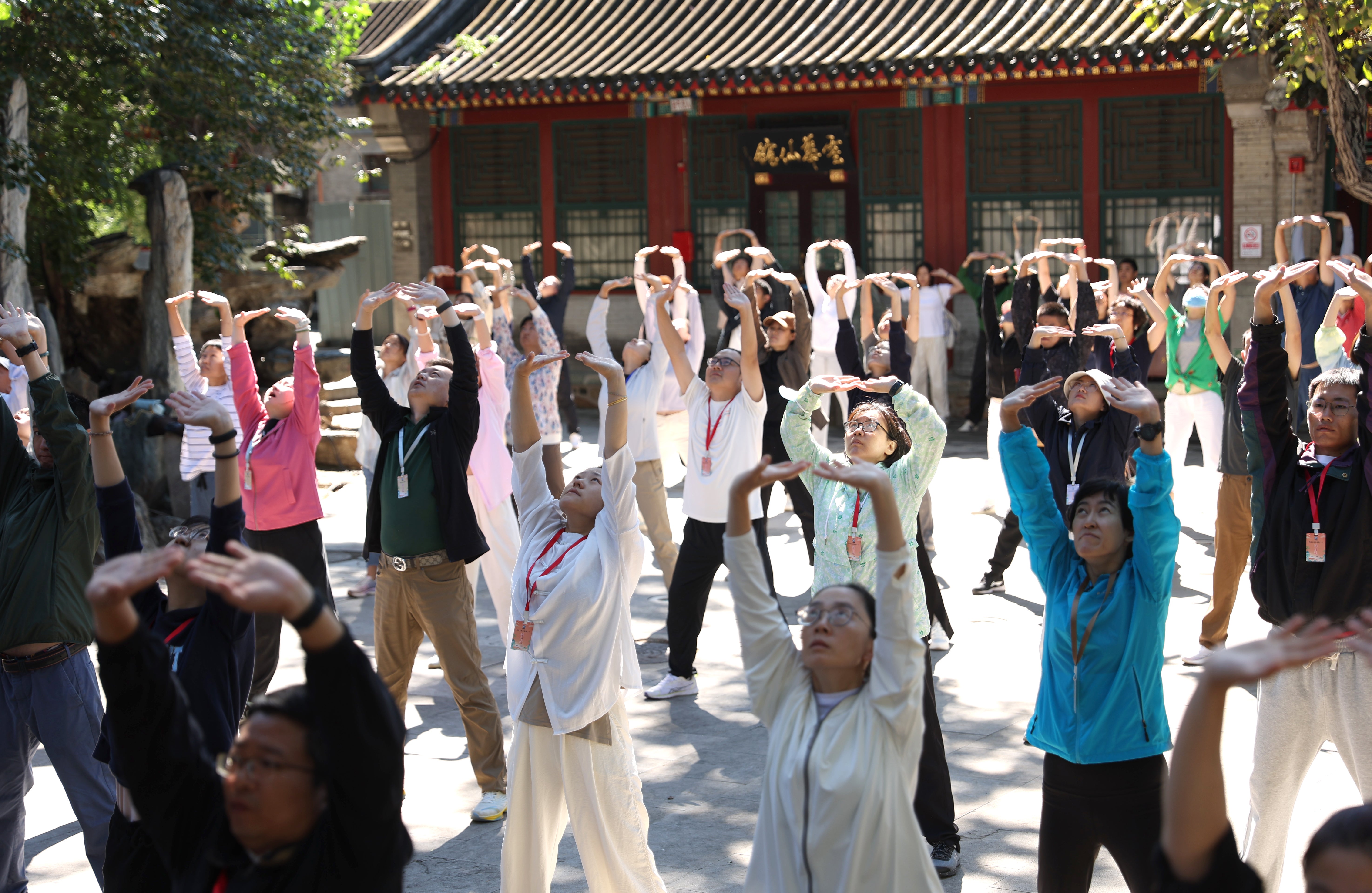Taoist temple exercise helps city workers relieve stress
THE ARTICLES ON THESE PAGES ARE PRODUCED BY CHINA DAILY, WHICH TAKES SOLE RESPONSIBILITY FOR THE CONTENTS

Young white-collar workers in Beijing can easily find themselves frazzled by the pressure of their day-to-day jobs and the fast pace of city life.
A Taoist temple located in the Chinese capital’s downtown Xicheng district, however, is providing an oasis of serenity for young residents to relieve their aches and pains, ease their nerves, and find inner calm.
The courtyards of Baiyun Temple are shaded by towering trees and filled with the aroma of burning incense. An exercise known as baduanjin, a form of Taoist qigong that combines a set of eight traditional Chinese fitness movements with meditation and breathing, has been taught on weekends at the temple for many years, attracting enthusiastic trainees.
Deng Jiayi, 30, is one of the instructors, and has been teaching baduanjin since 2017.
“We have found that the physical condition of people today is different from that of the past. Many people now are unable to learn martial arts or tai chi because their physical health is poor,” Deng said. “Therefore, our master suggested using some health preservation exercises for the public to learn and improve, and baduanjin became the exercise offered as a public welfare class at the temple.”

Deng believes that many urban residents suffer from physical stress brought on by overthinking. But by practising baduanjin they stretch and open up all their joints and limbs, and allow their entire bodies to slowly relax. This can calm their minds and provide them with a much-needed feeling of tranquillity, he said.
“The things that city residents bring about through social burdens, life and work pressures, can be easily removed through our classes,” Deng said, adding that trainees have been eager to learn and find solutions to relieve their stress.
Jiang Tianxiao, a 22-year-old from the Guangxi Zhuang autonomous region, began practising baduanjin in early August after realising a feeling of unhappiness pervaded her life.
“I just felt during that period that I couldn’t exhale completely,” she said. “It felt like I couldn’t get a full breath out, and my breath got stuck when I inhaled.”
Stretching while practising baduanjin helped her. The teacher always emphasised trainees stretch as far as possible within their comfort zone.
“I’ve been enjoying the feeling of focusing on practising at the temple, though it was a bit hard for me in the first stage,” she said.
Baduanjin, which means “eight-section brocade” in English, is composed of eight individual movements. Jiang said the first three are the most difficult for her to practise, especially the second one.
“The second movement, called ‘drawing the bow to shoot the hawk’, involves opening your left and right arms while performing a martial arts squat. It requires balance and coordination to keep up with the rhythm taught by the teacher,” she said.
Zi You, a baduanjin teacher at the temple, said more and more young people are interested in the traditional exercise.
Whenever students start a new workout routine, Zi suggests they begin slowly or with smaller movements, to ensure steady progress.
“For those who have been sedentary for long periods every day, year after year, it might be harmful to suddenly start intense activities like running or jumping,” he said.
In such instances, practising baduanjin can be a much healthier alternative.
“I often tell my students that you don’t need to worry too much about the quantity of the practice in the beginning. Whenever you have a moment, like during your lunch break on workdays, and feel tension in your shoulders or neck, do a few repetitions,” Zi said. “That can be a great starting point, and you will naturally want to keep going once you notice positive changes in your body and overall health.”
